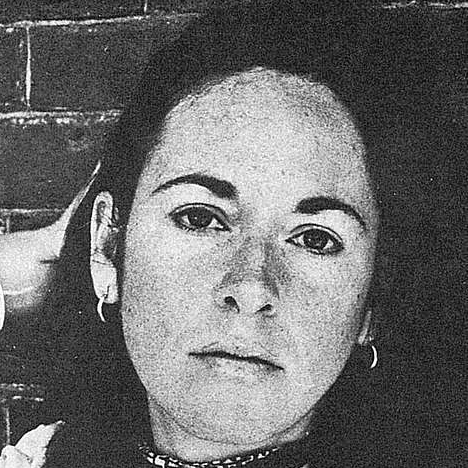The passing of a great American poet
by Andrew Koenig
In Memoriam, Louise Glück (1943–2023)
I last saw Louise Glück when she gave a reading at Harvard four years ago. Now it feels like an eternity. Unusually, for a Harvard event, the event was packed out, and people lined the sides of the Thompson Room to catch a glimpse of the poet. Despite her stature in the world of arts and letters, the reading was a down-to-earth affair—it felt as if a gift were being personally bestowed on each member of the audience. Then, after an hour, everyone dispersed.
I first learned of Louise Glück’s poetry while I was a student at Yale, where she taught. Fellow students spoke highly of her poetry workshops. Although I never took one, Glück’s reputation preceded her. Everyone who had taken one of her classes was a better poet for it. Poems that were loose, vague, imprecise but were trying to convey something real, became, in the hands of Louise Glück, poetry.
Then, when I had to stay up all night for an initiation and was struggling to stay awake, I memorized a few of her poems. This is when they really found their way into my head. Phrases of hers echoed in my mind for weeks afterwards. “Someone should teach you how to act in bed.” “I speak because I am shattered.” Lines almost unbearable in their intensity, lines you wish, sometimes, you could unhear, but then are thankful to have heard.
I remember the poem “Midnight” at this time of year:
Speak to me, aching heart: what
Ridiculous errand are you inventing for yourself
Weeping in the dark garage
With your sack of garbage: it is not your job
To take out the garbage, it is your job
To empty the dishwasher. You are showing off
Again,
Exactly as you did in childhood
“Midnight” captures something of the overachiever’s loneliness in words that are terse, to the point, simple. Glück’s poetry is, like Sylvia Plath’s, hard to label. If it is confessional, it is shorn of the trappings of sentimentality and self-justification that so often mar that particular mode. It is unsentimental, un-self-centered, despite the fact that it is about Glück’s life.
Few American poets of the past few decades have soared to such lyric heights. Another poem that I got by heart, on that strange sleepless night in college, still sticks with me—“Castile,” which is hard to cite in part, so I will just cite it in full:
Orange blossoms blowing over Castile
children begging for coinsI met my love under an orange tree
or was it an acacia tree
or was he not my love?I read this, then I dreamed this:
can waking take back what happened to me?
Bells of San Miguel
ringing in the distance
his hair in the shadows blond-whiteI dreamed this,
does that mean it didn’t happen?
Does it have to happen in the world to be real?I dreamed everything, the story
became my story:he lay beside me,
my hand grazed the skin of his shoulderMid-day, then early evening:
in the distance, the sound of a trainBut it was not the world:
in the world, a thing happens finally, absolutely,
the mind cannot reverse it.Castile: nuns walking in pairs through the dark garden.
Outside the walls of the Holy Angels
children begging for coinsWhen I woke I was crying,
has that no reality?I met my love under an orange tree:
I have forgotten
only the facts, not the inference—
there were children, somewhere, crying, begging for coinsI dreamed everything, I gave myself
completely and for all timeAnd the train returned us
first to Madrid
then to the Basque country
“Castile” is a simple story of waking up from a powerful dream, yet it encapsulates Glück’s major concerns: the nature of reality, self-deception, and love, as well as the suffering of children—a theme that is, alas, especially poignant now.
Waking up and wishing your life was different, crying while performing a menial chore: these are simple, everyday things. But later in her career, Glück turned to epic and archetypal themes, which in her hands had a way of feeling just as immediate as the poems from The Wild Iris which made her name. Averno is one such book. Village Life is another. Winter Recipes from the Collective—another book that I associate firmly with the place and time I read it: in Cambridge, where Glück lived, in winter—was what it proposed to be: a source of solace and nourishment, freely given.
There is a deep understanding, throughout Glück’s poetry, of pain. The pain of losing a child; the pain of a failing marriage; the pain of being one’s own worst enemy. Love, pain, mortality, childhood—these are the oldest themes, those most thoroughly plumbed by poets. Yet Glück found more to say on these subjects than almost any poet of her generation. Occasionally, her poems would suggest a way out of pain. The last lines of “Matins” do this: “Or was the point always / to continue without a sign?” So do the justly celebrated opening lines of “The Wild Iris”: “At the end of my suffering / there was a door.”
I think often of her poem “Nostos,” which concludes: “We look at the world once, in childhood. / The rest is memory.” The title of the poem is something I had never really paid attention to before. Nostos, homecoming: returning, at the end of one’s life, to the first things one knows and loves. I think, too, of these lines of Louise Glück’s about the death of children: “But death must come to them differently, / so close to the beginning.” It is a stroke of luck that this poet should have continued writing poetry so close to the end, producing volume after volume of moving, memorable poems even after she had already said so much.
Published on October 14, 2023

